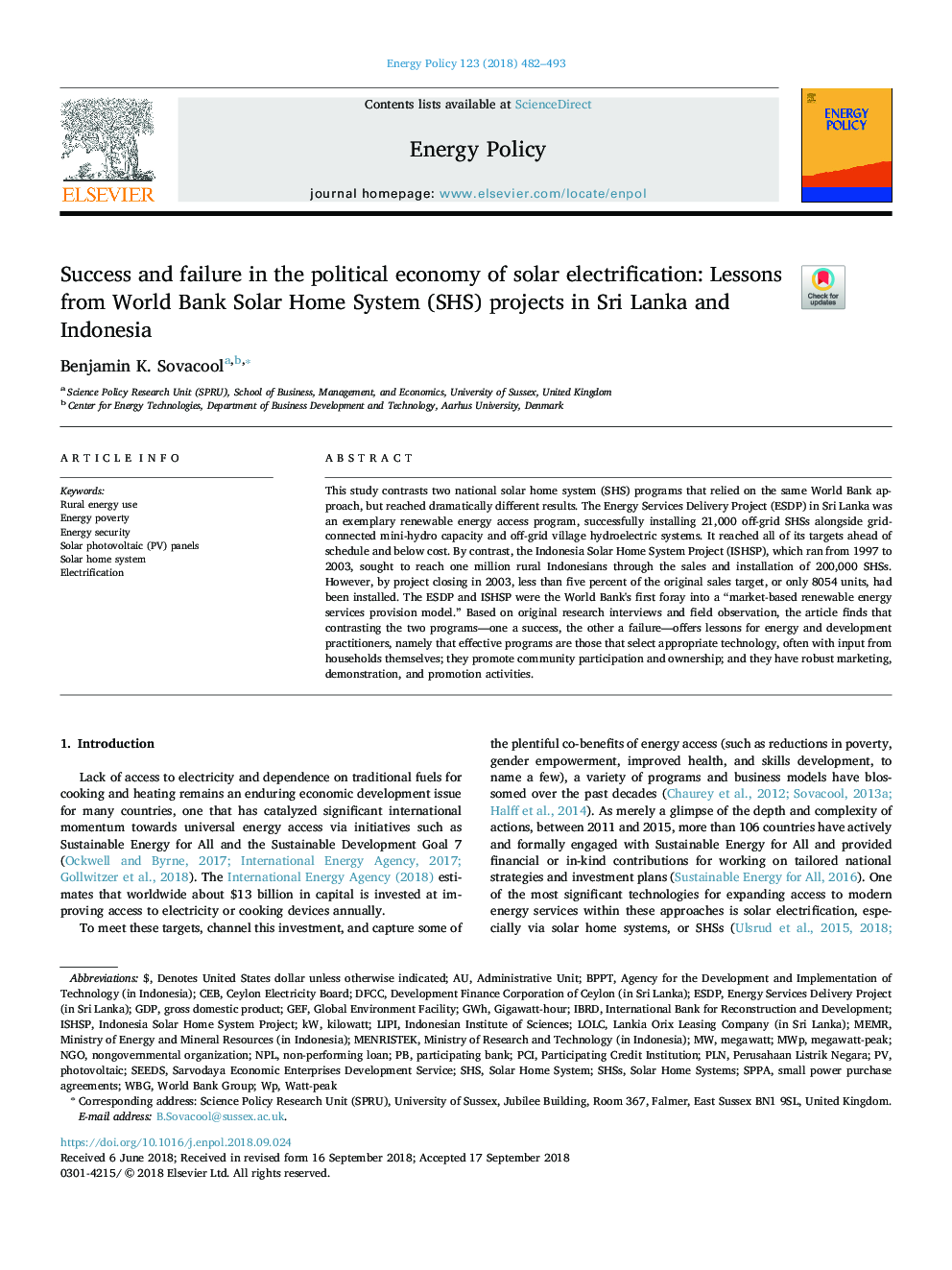| کد مقاله | کد نشریه | سال انتشار | مقاله انگلیسی | نسخه تمام متن |
|---|---|---|---|---|
| 11032296 | 1645633 | 2018 | 12 صفحه PDF | دانلود رایگان |
عنوان انگلیسی مقاله ISI
Success and failure in the political economy of solar electrification: Lessons from World Bank Solar Home System (SHS) projects in Sri Lanka and Indonesia
دانلود مقاله + سفارش ترجمه
دانلود مقاله ISI انگلیسی
رایگان برای ایرانیان
کلمات کلیدی
PLNMEMRSPPAWBGGWHNPLRural energy useCEBGEFPCIMWPSHSElectrification - الکتریکیEnergy security - امنیت انرژیGross domestic product - تولید ناخالص داخلیGDP - تولید ناخالص ملیSeeds - دانهNGO - سازمان غیر دولتیnongovernmental organization - سازمان غیر دولتیSolar home system - سیستم خانه خورشیدیSolar home systems - سیستم های خورشیدی خانهPhotovoltaic - فتوولتائیکEnergy poverty - فقر انرژیLIPI - لیپیGlobal Environment Facility - مرکز محیط زیست جهانیmegawatt - مگاواتkilowatt - کیلووات
موضوعات مرتبط
مهندسی و علوم پایه
مهندسی انرژی
مهندسی انرژی و فناوری های برق
پیش نمایش صفحه اول مقاله

چکیده انگلیسی
This study contrasts two national solar home system (SHS) programs that relied on the same World Bank approach, but reached dramatically different results. The Energy Services Delivery Project (ESDP) in Sri Lanka was an exemplary renewable energy access program, successfully installing 21,000 off-grid SHSs alongside grid-connected mini-hydro capacity and off-grid village hydroelectric systems. It reached all of its targets ahead of schedule and below cost. By contrast, the Indonesia Solar Home System Project (ISHSP), which ran from 1997 to 2003, sought to reach one million rural Indonesians through the sales and installation of 200,000 SHSs. However, by project closing in 2003, less than five percent of the original sales target, or only 8054 units, had been installed. The ESDP and ISHSP were the World Bank's first foray into a “market-based renewable energy services provision model.” Based on original research interviews and field observation, the article finds that contrasting the two programs-one a success, the other a failure-offers lessons for energy and development practitioners, namely that effective programs are those that select appropriate technology, often with input from households themselves; they promote community participation and ownership; and they have robust marketing, demonstration, and promotion activities.
ناشر
Database: Elsevier - ScienceDirect (ساینس دایرکت)
Journal: Energy Policy - Volume 123, December 2018, Pages 482-493
Journal: Energy Policy - Volume 123, December 2018, Pages 482-493
نویسندگان
Benjamin K. Sovacool,